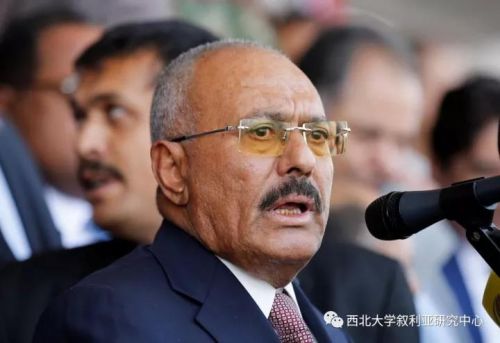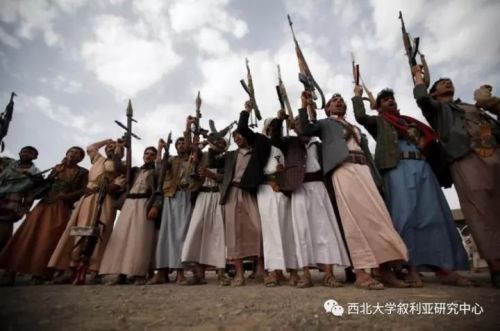中心特约研究员王晋在中国国际电视台网发表英文时事评论文章,全文如下:
The assassination of former Yemeni President Ali Abdullah Saleh shocked the whole world. On the one hand Saleh’s death reminded people of Gaddafi’s demise in Libya years ago. On the other hand, it proved once again that navigating a country like Yemen is certainly not an easy task.
Ali Abdullah Saleh was a Yemeni politician known as a master in establishing and disbanding political coalitions.
Before he became president, Saleh spent more than 20 years in Yemen's military forces, and established his own influence inside the Yemeni army, which became the foundation of his future political success. Saleh was elected as the president of North Yemen (the Yemen Arab Republic) following the assassination of former president Ahmad Al-Ghashmi in 1978.
In 1990, Saleh became the president of the united Yemen after the merger of North and South Yemen.

In 2011, Saleh was forced to resign in the face of massive domestic protests influenced by the “Arab Spring”. When the Houthi forces, a Shia group based in northern Yemen, began to attack south of Sanaa, the capital of Yemen, and other areas in the country in 2014, Saleh was accused of being behind the cooperation between the Houthis and government military forces.
In June 2016, Saleh and the Houthi rebels announced the formation of an alliance to fight the Saudi-led military coalition. It was agreed it would be run by a political council of 10 members, made up of five members from Saleh's General People’s Congress, and five from the Houthis.
In September 2017, the division inside the council became obvious when Houthis started to nominate their own candidates to replace several important government positions.
The alliance crumbled in late November when Saleh declared his willingness to talk to the Saudis. Houthi militants killed Saleh in Sanaa a few days after his announcement.
Saleh once likened ruling Yemen to "dancing on the head of snakes". Yemen is a unique state with a population of 27 million and very limited natural resources. Meanwhile, after decades of civil war (1960s-1990s), Yemen.became a state with more than 60 million guns and other weapons. Economic difficulties, poor security situation, and various tribal and religious clans make implementation of any policy in Yemen difficult.
There have been many conspiracy theories behind Saleh’s death, and it is still early to judge what exactly happened behind the scenes.
Before his death, Saleh had agreed to help decrease the divisions between Houthis and Saudi Arabia to end the war in Yemen. Saleh's eldest son Ahmed Ali Abdullah Saleh might have come back to the political world in Yemen following his exile. However, with Saleh’s death, such a political deal seems fragile and the civil war in Yemen might last longer.
The death of Saleh shows the determination of Houthis to refuse any peace coordination and proposal. They said Saleh was killed for "treason" after he cut ties with them in favor of the Saudi-led coalition. The civil war will further escalate because neither the Saudis nor the Houthis will show their weaknesses after the incident.

(The Houthi Fighters)
After years of military intervention in Yemen, Riyadh has spent billions of dollars and wasted hundreds of lives. Saudi Arabia has shown its desire to quit the war since the end of 2016, and hoped to reach a truce or treaty with the Houthi-Saleh coalition to establish a neutral government to run Yemen. Saleh’s death will surely blow Saudi’s international reputation on the one hand, and prolong the civil war that Saudi hopes to quit on the other hand.
There are many questions to be answered after Saleh’s death. For example, will the United Arab Emirates and Saudi Arabia allow Saleh’s eldest son, Ahmed, to return to Yemen and play any significant role in the fight against the Houthis or even in Yemen’s political future?
Regardless of the immediate impact of Saleh’s death, the war in Yemen has certainly taken an intriguing turn with the lives of more than 27 million civilians at stake.
(The author is a PhD candidate at the School of Political Science of University Haifa and a research fellow at Syria Research Center of Northwest University. The article reflects the author's opinions and not necessarily those of CGTN.)
